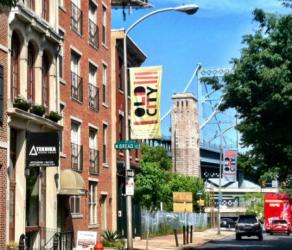Calling herself the “child of true Kenzos”, Cedar Point owner and executive chef Shannon Dougherty has roots that run deep in Kensington/Fishtown. She and partner Liz Petersen recently made the move up to this rapidly developing community to open a new restaurant offering locally-minded cuisine.
Shannon believes that in the restaurant business location is key. “We were working for many years in Northern Liberties” she notes, saying that while they loved the neighborhood, rapid development in the area had them feeling “boxed in.” With many of their regular customers moving north to the affordable homes and bigger spaces of the Kensington and Fishtown neighborhoods, Shannon and Liz felt it was time to try something new in a community Shannon has known since childhood.
Working with Solo Real Estate, the partners found a space located on a rare six-point intersection at the corner of East Norris and Cedar Streets. “I feel like every street in the neighborhood leads right here,” Shannon says, adding that the large crossroads brings light and energy into the restaurant.
Shannon made the conscious decision to have Cedar Point’s cuisine reflect the tastes of this evolving neighborhood. Serving classic southern comfort food with an updated twist, the menu, full of vegetarian and vegan-friendly options, is simultaneously focused and eclectic. Shannon laughs saying “We love everybody and wanted to serve food to both older local residents and hipsters alike.”
Even the food itself has local roots, as Cedar Point has teamed up with Teens 4 Good, a youth-led entrepreneurial project that works with at-risk young people on urban farming projects, to serve locally grown produce at the restaurant.
So how does a business conceived to reflect a specific neighborhood deal with area’s changing character? “I think this community has such a great spirit,” Liz asserts, arguing that the strong bonds of the Kensington/Fishtown community will likely make its gentrification process different and perhaps less polarizing than the development of other Philadelphia neighborhoods.
Indeed, Cedar Point seems to be just that kind of establishment, created with a conscious belief in the importance preserving the best of a community while still striving to positively effect its development and growth.
To learn more about Cedar Point, click here.


